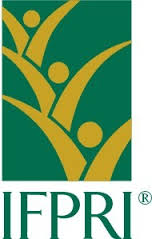 Middle Income Countries Play Key Role in Eliminating Hunger and Malnutrition
Middle Income Countries Play Key Role in Eliminating Hunger and Malnutrition
Findings from IFPRI’s 2014–2015 Global Food Policy Report
March 18, 2015, Washington, DC—Brazil, China, India, Indonesia, and Mexico may be rising economic powerhouses, but these five fast-growing, middle income countries are still home to nearly half of the world’s hungry, or 363 million people.
That is why we must also pay attention to those living in the “economic middle” as part of any strategy to effectively combat hunger and malnutrition on a global scale, according to a new report published today by the International Food Policy Research Institute (IFPRI).
The 2014–2015 Global Food Policy Report (GFPR) calls on governments of middle income countries to reshape their food systems to focus on nutrition and health, close the gender gap in agriculture, and improve rural infrastructure to ensure food security for all.
“It may seem counterintuitive, but these growing economies play a key role in our ability to adequately and nutritiously feed the world,” said Shenggen Fan, Director General of IFPRI.
The food security and nutrition situation in middle income countries is one of seven food policy issues examined in this year’s GFPR, an annual IFPRI flagship publication that examines major food, agriculture, and nutrition developments and trends with a view toward reducing poverty around the globe.
The report stresses the link between sanitation and nutrition, noting findings in Bangladesh that show that dramatic reductions in open defecation contributed to large declines in the number of stunted children. The research found that Bangladeshi children living in places where open defecation had been reduced were taller than children in neighboring West Bengal, India, where open defecation is still common, even at the same levels of economic wealth.
“It has become clear that the factors that influence people’s nutrition go well beyond food and agriculture to include drinking water and sanitation, the role of women, the quality of caregiving, among others,” Fan said.
The report discusses the strong evidence that food insecurity was a contributing factor to instability in the Middle East and also draws attention to the pressing need to regulate food production to prevent food borne diseases, help small family farmers move up by increasing their incomes or move out to non-farm employment, improve social protection for the rural poor, and support the role of small-scale fishers in satisfying the global demand for fish.
“We made some important strides toward global food and nutrition security in 2014,” Fan noted. “For example, nutrition shot up to the top of the global agenda and the concept of climate-smart agriculture has gained a foothold.
“Now we need to keep these and other food-policy issues high on the global development agenda to ensure we eliminate hunger and malnutrition worldwide,” Fan said.
The International Food Policy Research Institute (IFPRI) seeks sustainable solutions for ending hunger and poverty. IFPRI was established in 1975 to identify and analyze alternative national and international strategies and policies for meeting the food needs of the developing world, with particular emphasis on low income countries and on the poorer groups in those countries. www.ifpri.org.
